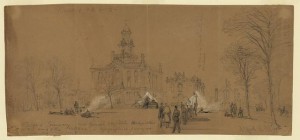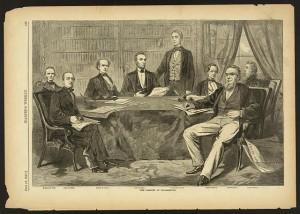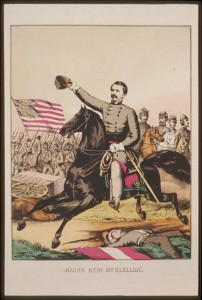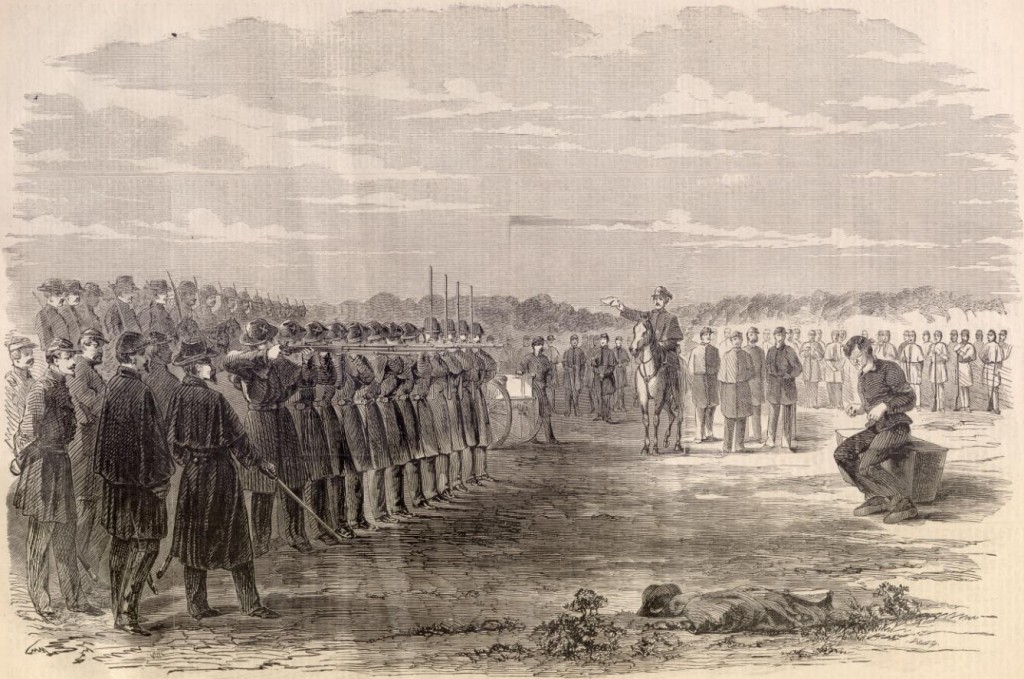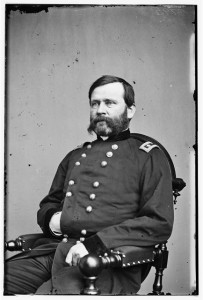From a Seneca County, New York newspaper December 1861:
Army Correspondence
FAIRFAX SEMINARY; Va., Dec. 14.
The anticipations of battle soon to be fought in Virginia, which a few days since were general throughout nearly all the camps around here, have ceased. General quiet prevails, and there is a feeling of partial indifference whether we have a fight or not. Not that there is any indifference to the cause of the Union.You can hardly find one in the ranks who does not well understand all the questions to be decided by the war. I believe a better army, – one composed of more intelligent and patriotic men – was never mustered. They are tired of inactivity. A prospect of the enemy’s advance upon us, or an order for our advance would be hailed with delight. But their confidence in the General-in-Chief is such that they are content to wait until he is ready. And if, as Mr. Seward is reported to have said, a battle and a victory would stand in the way of peace and the restoration of the Union; if our wise men can clearly see a better way than to annihilate the rebels, let it be so.
_________________________
The only unusual occurrence that has transpired in this vicinity was the shooting, yesterday afternoon, of a deserter, W H Johnson of Co. D, First N.Y. cavalry (lately Lincoln cavalry) Regiment. For a long time Johnson’s conduct has been very strange, but it did not excite suspicion of disloyalty. He would frequently get away from his Company and be absent for a day or two, and no punishment would prevent a repetition when an opportunity occurred. – After his condemnation he confessed that at such times he was sending information to the rebels. While on picket duty recently, he rode beyond the Federal outposts, and was making his way toward the enemy, when he fell in with a body of Union infantry, which he mistook for a party of rebels, and said he had deserted to them. The officer in command pretended to be of the Confederate army, and to prove him, obtained much accurate information of the force and condition of the Union army. Of course he was brought back a prisoner, and yesterday, according to the sentence of the Court martial, he was shot in the presence of the whole of Gen. Franklin’s Division. The last sun of his life shone bright and beautiful upon him and the long lines of soldiers assembled to witness his execution. It was hard to see him stand before his executioners, the next moment to lie riddled with bullets. Two who lacked the courage to fire were immediately confined in irons to await their own trial. Such is the discipline required in war.
The unfortunate man died courageously, evincing a spirit worthy of a better fate. In the presence of his executioners he owned his guilt and the justice of his sentence.
You can read an excellent article about the Execution of Pvt. William Henry Johnson at Civil War Washington, D.C.. This includes images from several period publications.
As always, the Harper’s Weekly account is provided by Son of the South. It is a detailed report.

